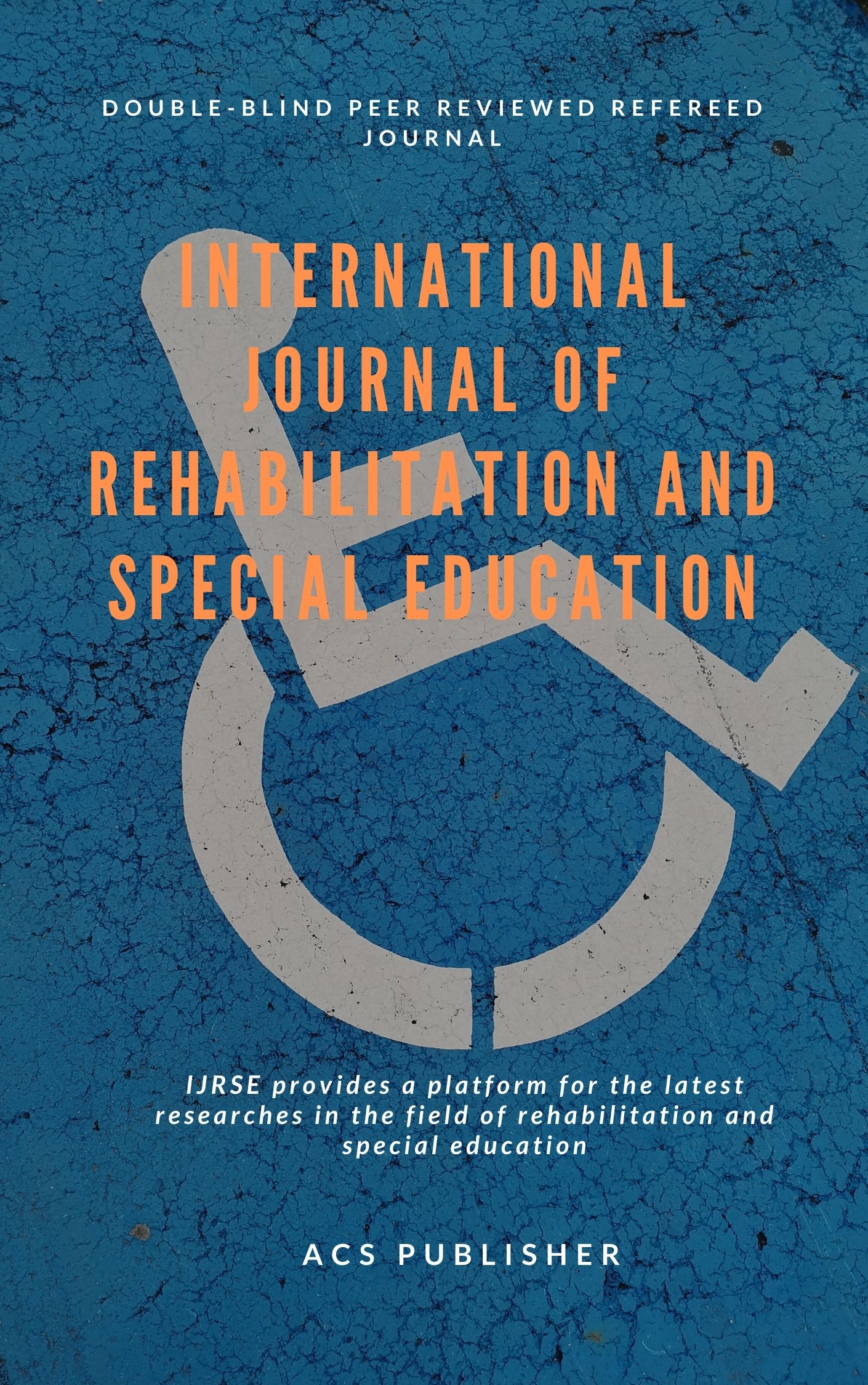Examining the Influence of ICT on the Teaching and Learning of Mathematics in Colleges of Education in Ghana: An Empirical Review
DOI:
https://doi.org/10.48165/ijrse.2023.4.1.1Keywords:
ICT, Teaching, Learning Mathematics, Colleges of EducationAbstract
This study examined the influence of information and communication technology (ICT) on the pedagogy and acquisition of mathematical knowledge in colleges of education in Ghana. The analysis of how information and communication technology (ICT) is employed in the instruction and acquisition of mathematical concepts is conducted through the utilisation of the Technological Pedagogical Content Knowledge (TPACK) framework. The study employed a desktop study methodology. The study emphasises the significance of educators having proficiency in the three domains of Technological Pedagogical Content Knowledge (TPACK) to successfully integrate technology into their teaching practises. The paper additionally examines the strategies implemented by the Ghanaian government to promote the incorporation of information and communication technology (ICT) within educational establishments. The present study suggests that it is imperative to provide fundamental information and communication technology (ICT) resources, such as computers, laptops, and infrastructure, in order to facilitate the successful incorporation of ICT into the educational process within Colleges of Education in Ghana schools.
References
Abakah, E., & Okyere, S. O. (2017). Teachers’ Preparedness to Integrate ICT in Teaching and Learning in Ghanaian Schools: The Case of Computer-Aided Instruction. Journal of Education and Practice, 8(14), 11-19.
Abban, E. (2021). Towards effective teaching: Examining the fac tors that affect mathematics teachers in Ghana. Journal of Education, Curriculum and Teaching Studies, 2(1).
Agyei, D. D., & Voogt, J. (2011). ICT use in the teaching of mathematics: Implications for professional development of pre-service teachers in Ghana. Education and information technologies, 16, 423-439.
Agyei, D. D., & Voogt, J. (2018). Exploring factors influencing teachers’ adoption and integration of information and communication technology into teaching mathematics. Education and Information Technologies, 23(1), 419-438.
Aheto-Domi, B., deGraft-Yankson, P., Addo, C., & Bimpeh, G. K. (2021). Teacher Trainees Readiness for E-learning in Colleges of Education in Ghana. American Journal of Educational Research, 9(7), 396-403.
Ampofo, J. A., & Abrefi, A. A. (2020). ICT resources available for Teachers in Basic Schools in Adansi Atobiase in the Adansi South District of Ghana. International Journal of Applied Research in Social Sciences, 2(4), 97-110.
Apeanti, W. O. (2016). Contributing Factors to Pre Service Mathematics Teachers’e-Readiness for ICT Integration. International Journal of Research in Education and Science, 2(1), 223-238.
Edumadze, J. K. E. (2015). The integration of Information and Communication Technology for teaching and learn ing at Ghanaian Colleges of Education: ICT Tutors’ Perceptions. African Journal of Teacher Education, 4(2).
Ghana Education Service. (2015). Education sector ICT policy. Retrieved from https://www.moe.gov.gh/files/ICT%20 Policy%202015.pdf
Hagan, J. E., Amoaddai, S., Lawer, V. T., & Atteh, E. (2020). Students’ perception towards mathematics and its effects on academic performance. Asian Journal of Education and Social Studies, 8(1), 8-14.
Hennessy, S., Mercer, N., & Warwick, P. (2011). A dialogic inquiry approach to working with teachers in developing classroom dialogue. Teachers college record, 113(9), 1906-1959.
Hoyles, C., Noss, R., Kent, P., & Bakker, A. (2010). Improving mathematics at work: The need for techno-mathematical literacies. New York, NY: Routledge.
Kent, P., & Noss, R. (2011). Technology as maths learning prac tice: A socio-cultural perspective. Mathematics Education Research Journal, 23(1), 5-24.
Mensah, F. S., & Agyei, D. D. (2021). The Paradox of Ghanaian High School Mathematics Teachers’ Perspectives on ICT Use. African Journal of Teacher Education, 10(1), 172-194.
Mensah, F. S., & Agyei, D. D. (2021). The Paradox of Ghanaian High School Mathematics Teachers’ Perspectives on ICT Use. African Journal of Teacher Education, 10(1), 172-194.
Mercer, N., & Hennessy, S. (2011). Language and literacies in the new millennium. In N. Mercer & S. Hennessy (Eds.), Technology-enhanced learning: Principles and products (pp. 3-14). London, UK: Routledge.
Mishra, P., & Koehler, M. J. (2006). Technological pedagogical content knowledge: A framework for teacher knowledge. Teachers College Record, 108(6), 1017-1054.
Niederhauser, D. S., Howard, S. K., Voogt, J., Agyei, D. D., Laferriere, T., Tondeur, J., & Cox, M. J. (2018). Sustainability and scalability in educational technology initiatives: Research-informed practice. Technology, Knowledge and Learning, 23, 507-523.
Rybak, A. (2021). Effectiveness of teaching and learning in technology-supported mathematics education. In Journal of Physics: Conference Series (Vol. 1946, No. 1, p. 012004). IOP Publishing.
Soh, N. K. (2020). The Impact of ICT on Teaching and Learning in Colleges of Education: The Dambai College of Education Issue. Journal of Education, Curriculum and Teaching Studies, 1(1), 1-18.
Tsitsia, B. Y., & Kabbah, S. K. (2020). Trainee-teachers’perceptions on traditional, online and hybrid learning modes of math ematics education in ghana. African Journal of Education and Practice, 6(7), 87-100.
UNESCO. (2011). UNESCO ICT competency framework for teachers. Retrieved from https://unesdoc.unesco.org/ ark:/48223/pf0000216255
Voogt, J., Fisser, P., Pareja Roblin, N., Tondeur, J., & van Braak, J. (2013). Technological pedagogical content knowledge–a review of the literature. Journal of computer assisted learn ing, 29(2), 109-121.
Wilmot. E, M, (2015). Issues and options for using multime dia to improve pre-service mathematics teacher education in ghana. Cullen, J., Mallet, J., & Murphy, K. (2019). The opportunities and challenges for developing ICT-based sci ence learning and teaching in Ghana.
Yeboah, W., Asianoa, R., & Asiamah, J. O. (2020). Does ICT influ ence teaching and learning in Ghana? An evidence-based study on ICT integration in classroom teaching. International Journal of Research and Scholarly Communication, 3(3), 7-16.
Downloads
Published
Issue
Section
License
Copyright (c) 2023 International Journal of Rehabilitation and Special Education (IJRSE)

This work is licensed under a Creative Commons Attribution-NonCommercial-NoDerivatives 4.0 International License.

